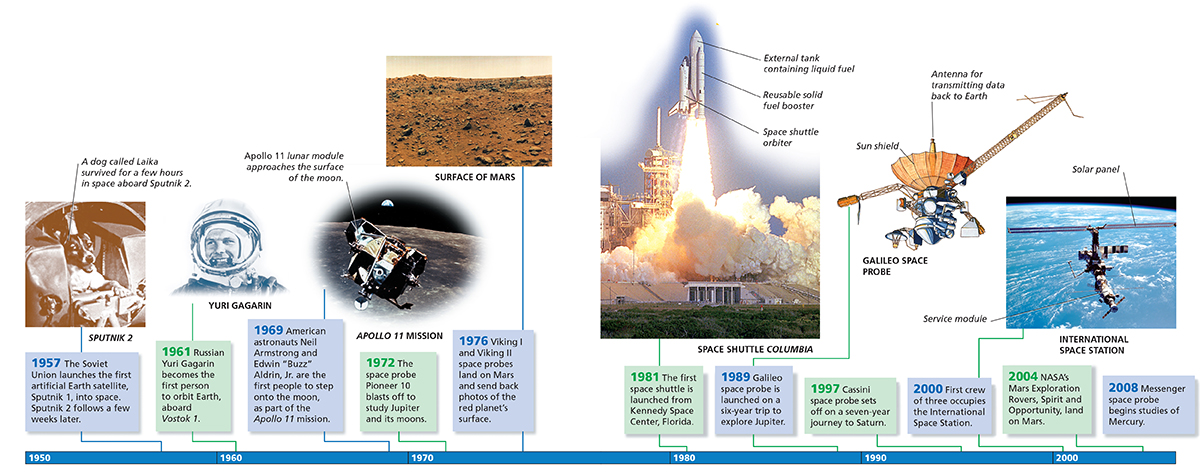Unlike most smaller planets and moons, Earth has enough gravity to hold most gas molecules. This allows Earth to maintain a thick atmosphere. Why isn't Earth's atmosphere composed mostly of carbon dioxide, like the atmospheres of Venus and Mars? On Earth, some living organisms use carbon dioxide and produce oxygen. Earth's oceans also remove carbon dioxide from the atmosphere by dissolving it. The formation of limestone, which contains calcium carbonate (CaCO3), then locks away the carbon underground.
The moon, Mercury, and Mars are all so small that over time they have lost much of their internal heat and have become geologically dead. Earth is large enough that it has not had a chance to cool down much. As a result, Earth has moving tectonic plates that continually change its surface.
 SCIENCE and History
SCIENCE and History
Exploring the Solar System
Since the 1950s, several countries have made incredible progress in space exploration. Exploration technology and capabilities have changed dramatically since the first satellite launch in 1957.






